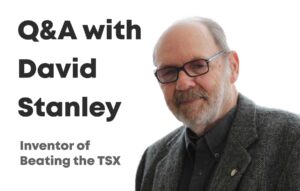Once upon a long long time ago, a famous military general was returning from war. He couldn’t wait to get home to his family and his palace, but there were numerous challenges along the way and it took him ten years to finally reach his destination.
The general’s name was Odysseus and perhaps the greatest challenge he faced was himself. Odysseus had been warned by Circe the Enchantress that he would encounter the Sirens. These winged creatures sang songs so captivating that they compelled sailors to jump from their ships and swim toward certain death.
Odysseus knew the route he must take to his destination would involve this great temptation. In spite of his famous self-confidence, he also knew he would be unlikely to resist the Sirens’ calls – and yet, he wanted to hear them. So, he devised a plan to have himself tied to the mast of his ship while the rest of his men’s ears would be plugged with wax so they could hear neither the Sirens’ song nor their master’s pleas to be released. In this way, Odysseus became the first man to hear the Sirens and live to tell about it.
A treacherous path
As investors, we face similar scenarios. Just like Odysseus who dreamed of his destination, we dream of the day we will be financially independent. Just like Odysseus knew his path would involve crisis and temptation, we know that investing in the stock market will be equally treacherous – and will frequently tempt us to jump ship, abandoning the course we had set.
How many stock market crashes have you been through? When the markets swooned by 20% before Christmas, were you tempted to stray from your plan? Do you know – really know – what you will do when the stock markets drop by 30% . . . 50% . . . more? Unfortunately, the price we pay for higher average returns in the stock market is higher short term volatility. We know this in a factual sense, but are we prepared for it in a real sense like Odysseus prepared for the Sirens?
Weakened by crisis
We are not wired to make good decisions in crisis situations. A crisis induces stress; stress releases adrenaline and cortisol. Heart rate and blood pressure go up; those parts of the brain involved in the fight or flight response (the amygdala, in particular) become active while those big areas responsible for analysis and rational thought (the prefrontal cortex) are inhibited. Crisis triggers stress which leads to fuzzy thinking.
This framework may have served us well as nomadic hunters and gatherers when the most important threats we faced were immediate and clear, like defending the clan from predators and avoiding poisonous plants; but it doesn’t translate well to modern life. The scenarios we encounter now are fundamentally different, vastly more complex, and span time-frames far longer than those our ancestors faced.
What are the chances?
Not only are we ill-equipped to handle a crisis when it occurs, we’re also shockingly bad at understanding the probability of a crisis happening.
- What are the chances you will experience a stock market crash of greater than 50%?
- What are the chances you’re going to lose your job at some point?
- What are the chances you will experience a common-law relationship or marriage failure?
- What are the chances you will be diagnosed with a terminal illness?
The truth is, more than half of these crises will happen to you in your life. But here’s another quirk of human nature: we don’t like to think about unpleasant things happening to us (and research shows this mental bias becomes more pronounced with age). The amount of time it takes to fix a mess is far greater than what it takes to front-load the effort. Still, even though we know we should, most of us don’t prepare.
The paradox of prevention
Here’s the paradox of prevention: we love the concept but resist the practice. We’ll pay anything to clean up the mess, but will invest very little in preventing the mess in the first place. Messes are theoretical constructs – until they happen.
We are at war with our future selves. Our present self wants to enjoy, consume, and minimize uncomfortable efforts. Our future self wants us to work a little harder, save more, and delay gratification. But our future selves are not here, so they usually lose the battle; we base decisions on immediate risks vs risks that are real to our future selves.
Flying in a plane is safe because pilots have studied and practiced what they will do in crisis scenarios. Surgeons don’t wait for complications to figure out how to deal with them – they know the best course of action ahead of time. Increasingly, corporations are employing the strategy of conducting “pre-mortems” where they imagine a project fails then work backwards to investigate the likely factors that led to the hypothetical failure.
An ounce of prevention is worth a pound of cure
Odysseus was ahead of his time. He anticipated the crisis, admitted his fallibility and planned his actions accordingly. He might not have known about cortisol or the prefrontal cortex, but he knew he would not be thinking clearly when the Sirens started singing.
What could hinder you from achieving financial independence?
- Are you saving enough?
- Are you appropriately insured?
- Do you have a written investment plan?
- Do you know what you will do when the market drops 30%, 50%, 70%?
Identify your Sirens and spend a little time making your future self happy. Odysseus’s plan was not complicated; it worked because he committed himself to it. This exercise doesn’t have to take a lot of time or effort. We may not be able to tie ourselves to the mast, but we can at least write our plans down. Ask yourself the hard questions, like those above, and write down the answers. If changes need to be made, start now. If the act of recording your plan is not enough, email me a copy and I will save it for you. I will be your crew member with wax in his ears.



A great thought provoking blog post. I am certainly guilty of assuming I’ll have the same clarity of mind and available resources in times of crisis. This journey of personal growth and improvement creates an all too easy assumption that my future self is more capable than the current. Giving my future self permission to be fallible and creating contingencies that mitigate the risk of compounding erroneous actions is certainly something I will give more time to considering.
Thanks for the comment, Lee, and great point about the risk of compounding erroneous actions. It’s an uncomfortable topic, but the task of fortifying our futures against known and likely threats need not be time consuming.
If you’re interested, this podcast provided a lot of food for thought: https://www.npr.org/programs/ted-radio-hour/534605310/prevention
Pingback: Why is the stock market crashing? —
Pingback: Lessons from the COVID crash and recovery —
Pingback: Stop saving for retirement. Start saving for financial independence. —